
How To Do High Quality Research, Write Acceptable Papers,and Make Effective Presentations? Qinpei Zhao http://sse.tongji.edu.cn/zhaoqinpei/
How To Do High Quality Research, Write Acceptable Papers, and Make Effective Presentations? Qinpei Zhao http://sse.tongji.edu.cn/zhaoqinpei/
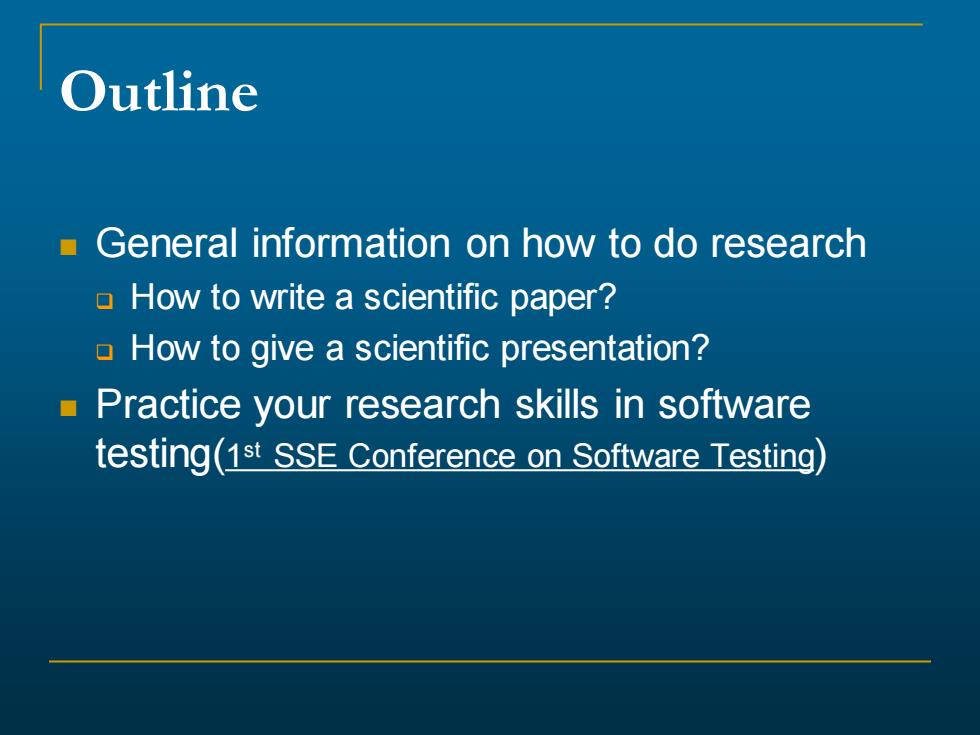
Outline General information on how to do research How to write a scientific paper? How to give a scientific presentation? Practice your research skills in software testing(1st SSE Conference on Software Testing)
Outline ◼ General information on how to do research ❑ How to write a scientific paper? ❑ How to give a scientific presentation? ◼ Practice your research skills in software testing(1 st SSE Conference on Software Testing)
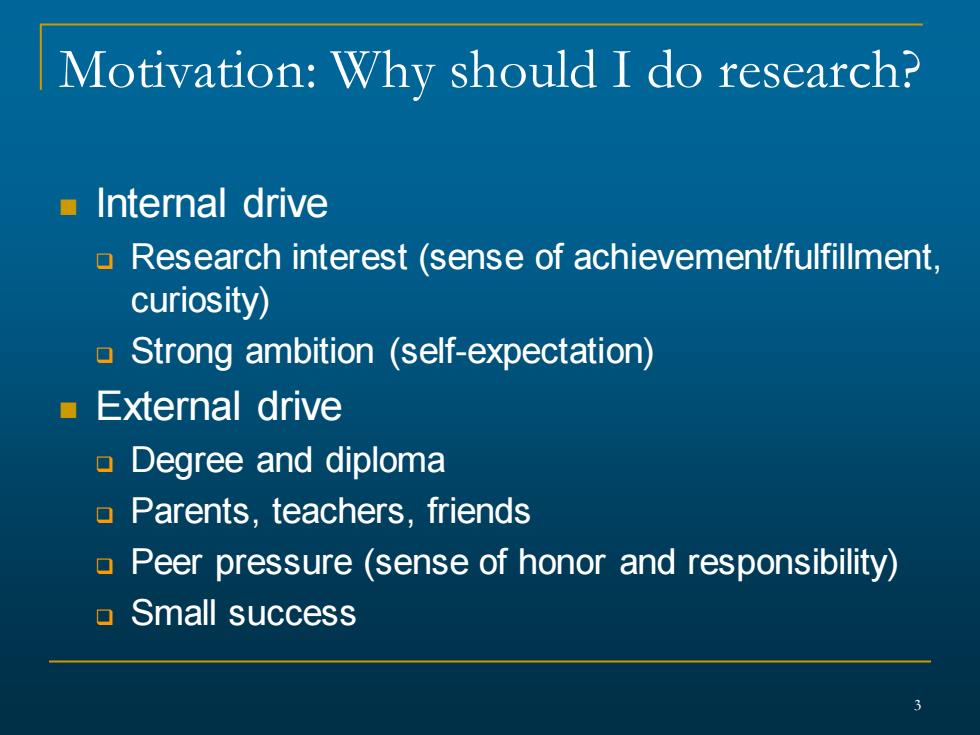
Motivation:Why should I do research? Internal drive Research interest (sense of achievement/fulfillment. curiosity) Strong ambition (self-expectation) External drive Degree and diploma Parents,teachers,friends Peer pressure (sense of honor and responsibility) ▣Small success
3 Motivation: Why should I do research? ◼ Internal drive ❑ Research interest (sense of achievement/fulfillment, curiosity) ❑ Strong ambition (self-expectation) ◼ External drive ❑ Degree and diploma ❑ Parents, teachers, friends ❑ Peer pressure (sense of honor and responsibility) ❑ Small success
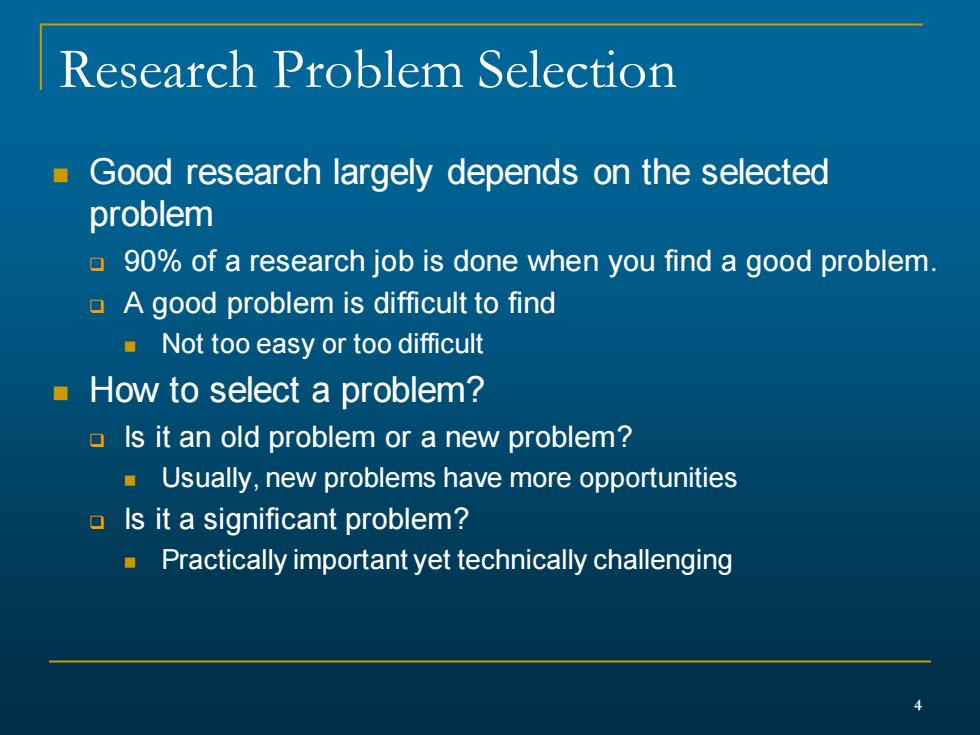
Research Problem Selection Good research largely depends on the selected problem 90%of a research job is done when you find a good problem. A good problem is difficult to find Not too easy or too difficult How to select a problem? Is it an old problem or a new problem? Usually,new problems have more opportunities Is it a significant problem? Practically important yet technically challenging
4 Research Problem Selection ◼ Good research largely depends on the selected problem ❑ 90% of a research job is done when you find a good problem. ❑ A good problem is difficult to find ◼ Not too easy or too difficult ◼ How to select a problem? ❑ Is it an old problem or a new problem? ◼ Usually, new problems have more opportunities ❑ Is it a significant problem? ◼ Practically important yet technically challenging
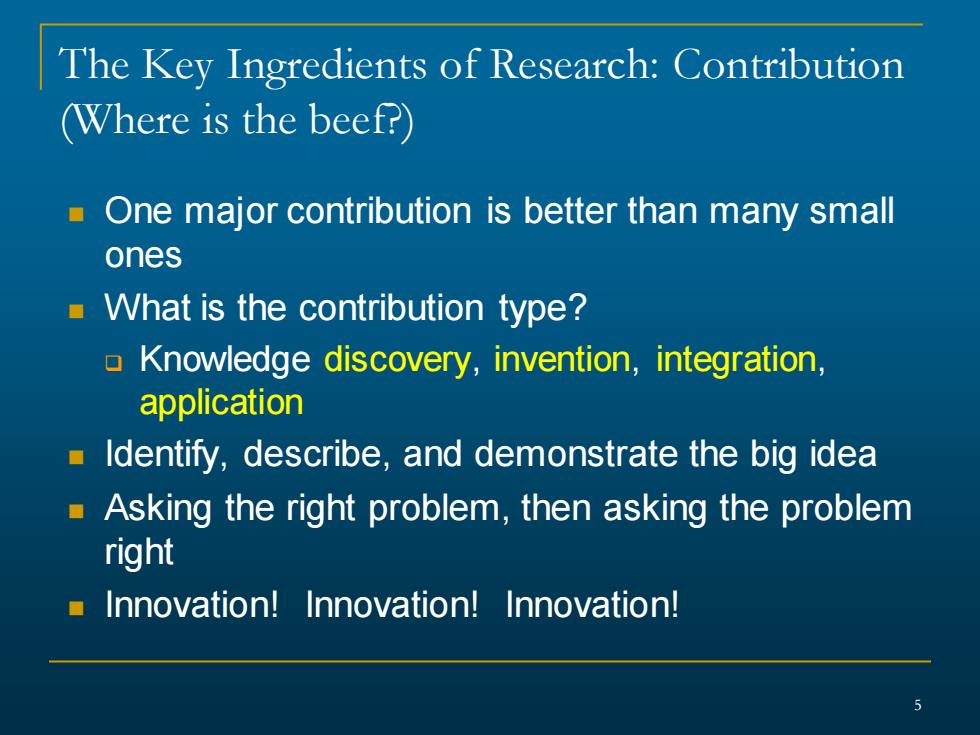
The Key Ingredients of Research:Contribution (Where is the beef? One major contribution is better than many small ones What is the contribution type? Knowledge discovery,invention,integration, application Identify,describe,and demonstrate the big idea Asking the right problem,then asking the problem right Innovation!Innovation!Innovation!
5 The Key Ingredients of Research: Contribution (Where is the beef?) ◼ One major contribution is better than many small ones ◼ What is the contribution type? ❑ Knowledge discovery, invention, integration, application ◼ Identify, describe, and demonstrate the big idea ◼ Asking the right problem, then asking the problem right ◼ Innovation! Innovation! Innovation!
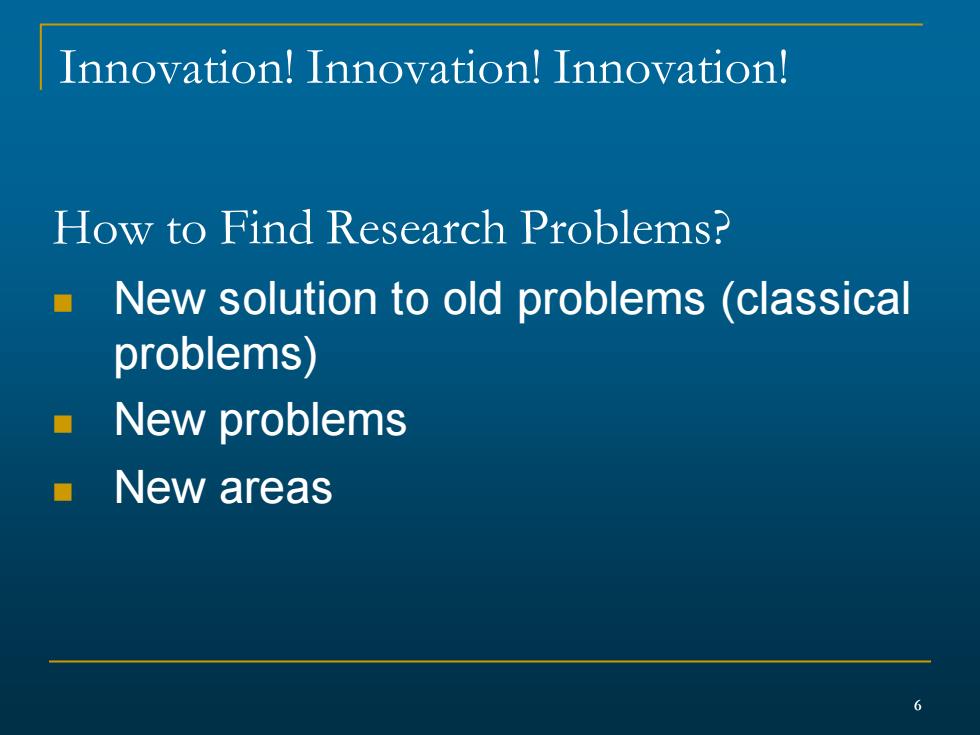
Innovation!Innovation!Innovation! How to Find Research Problems? New solution to old problems (classical problems) ■ New problems New areas 6
6 Innovation! Innovation! Innovation! How to Find Research Problems? ◼ New solution to old problems (classical problems) ◼ New problems ◼ New areas
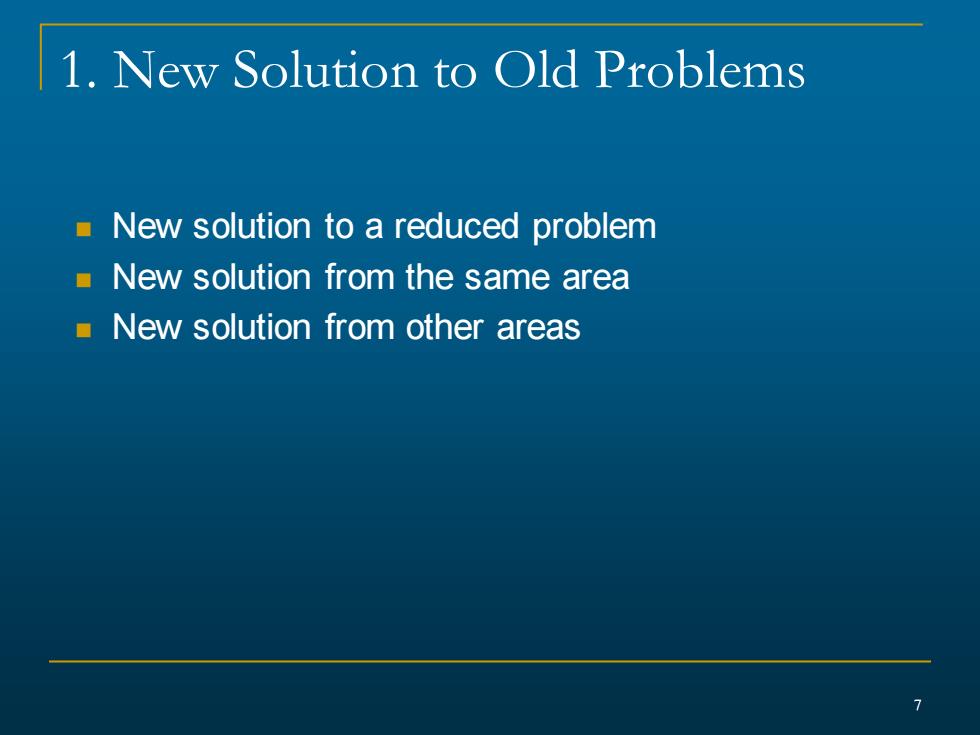
1.New Solution to Old Problems New solution to a reduced problem New solution from the same area New solution from other areas
7 1. New Solution to Old Problems ◼ New solution to a reduced problem ◼ New solution from the same area ◼ New solution from other areas
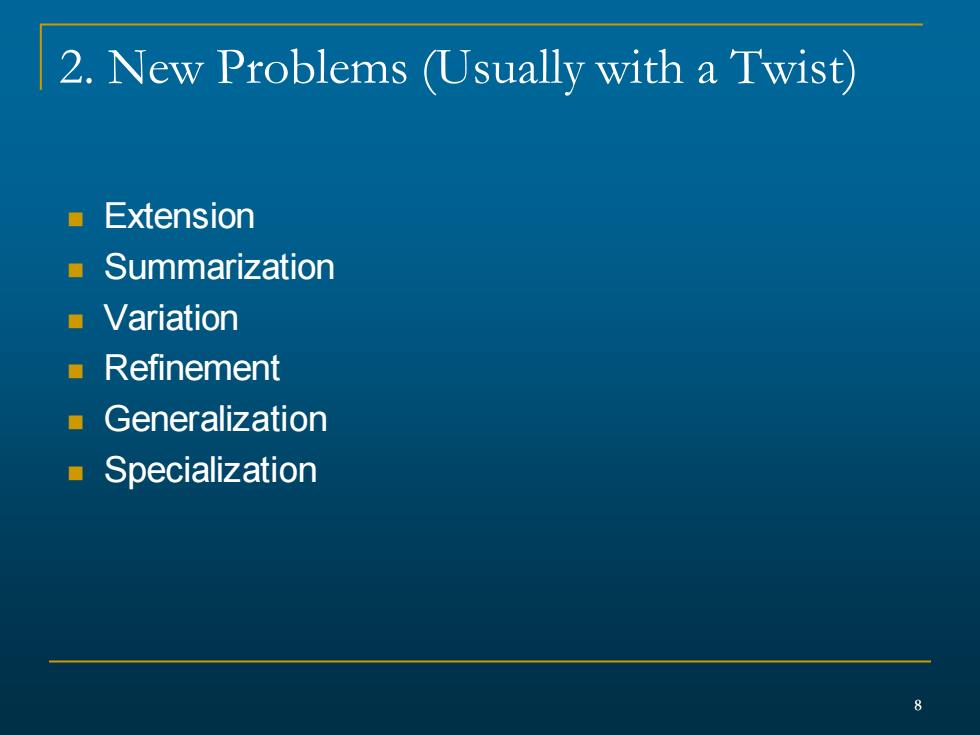
2.New Problems (Usually with a Twist) Extension Summarization Variation Refinement ■Generalization Specialization
8 2. New Problems (Usually with a Twist) ◼ Extension ◼ Summarization ◼ Variation ◼ Refinement ◼ Generalization ◼ Specialization
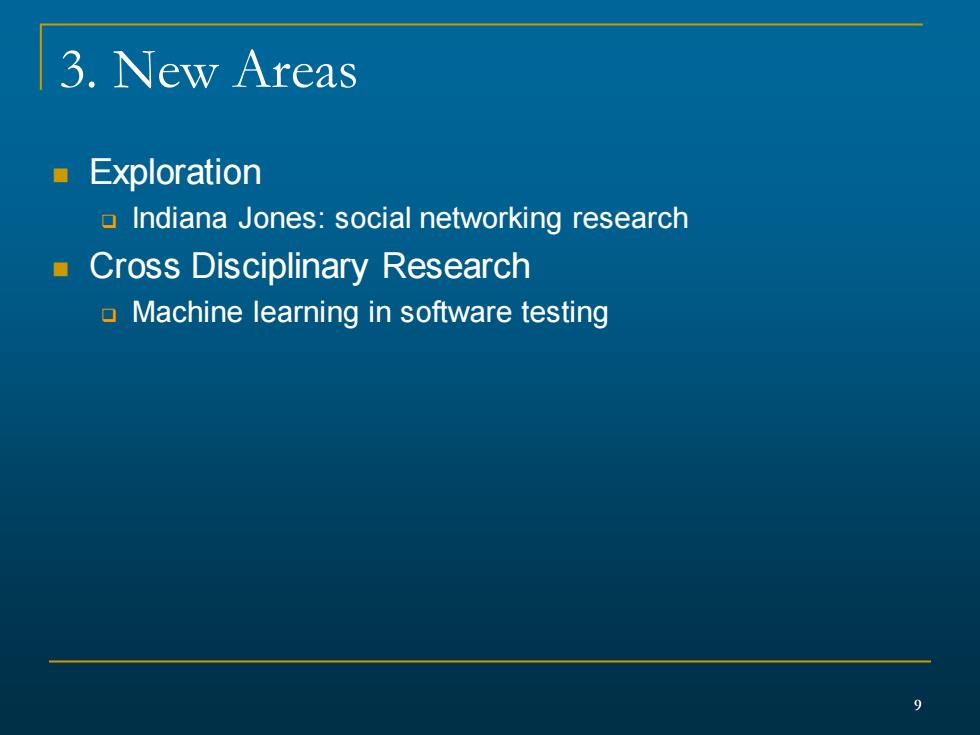
3.New Areas Exploration Indiana Jones:social networking research Cross Disciplinary Research Machine learning in software testing 9
9 3. New Areas ◼ Exploration ❑ Indiana Jones: social networking research ◼ Cross Disciplinary Research ❑ Machine learning in software testing
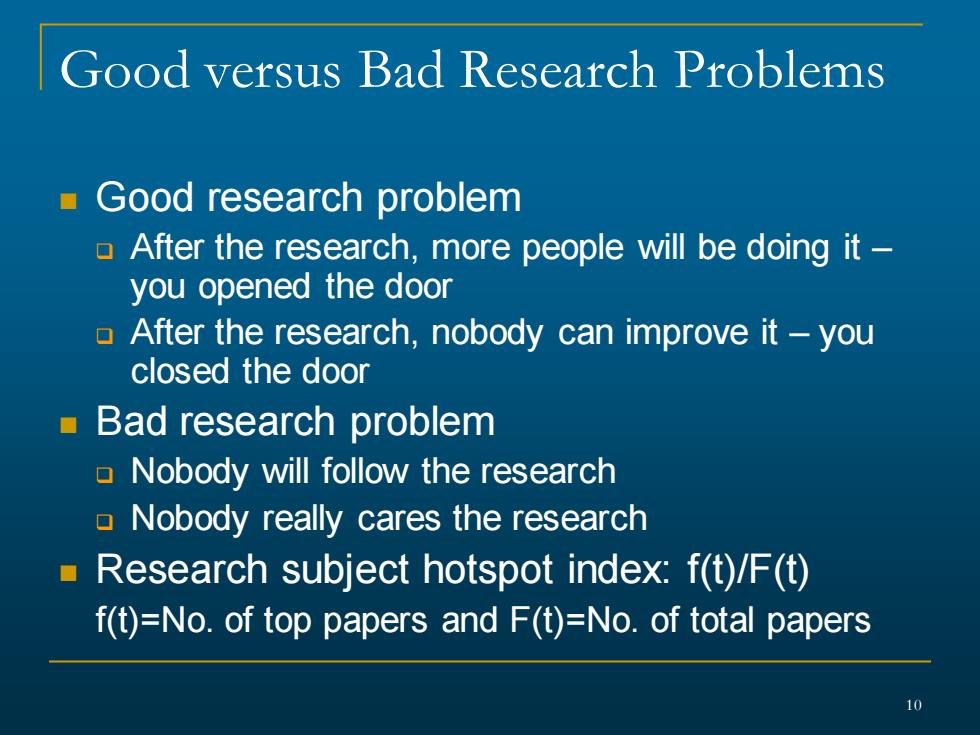
Good versus Bad Research Problems Good research problem After the research,more people will be doing it you opened the door After the research,nobody can improve it you closed the door ■Bad research problem Nobody will follow the research Nobody really cares the research Research subject hotspot index:f(t)/F(t) f(t)=No.of top papers and F(t)=No.of total papers 10
Good versus Bad Research Problems ◼ Good research problem ❑ After the research, more people will be doing it – you opened the door ❑ After the research, nobody can improve it – you closed the door ◼ Bad research problem ❑ Nobody will follow the research ❑ Nobody really cares the research ◼ Research subject hotspot index: f(t)/F(t) f(t)=No. of top papers and F(t)=No. of total papers 10